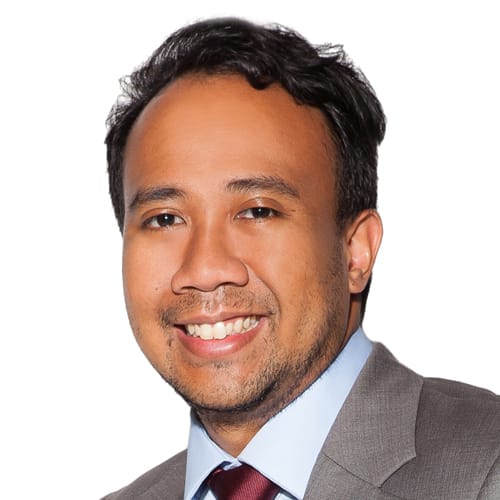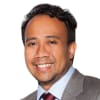Medical apps providing virtual consultations, e-MCs on the rise
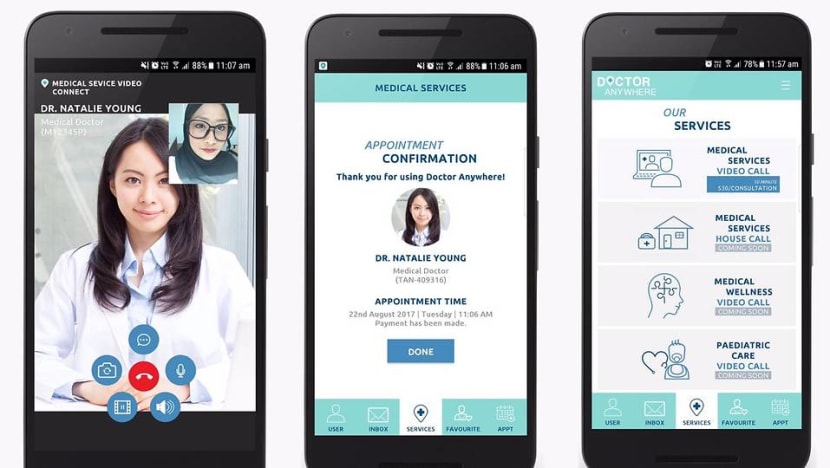
Screenshots from the Doctor Anywhere app. (Photo: Doctor Anywhere)
SINGAPORE: When Mr Benjamin Gan, 26, caught a cold and started coughing because of a few late nights at the office, he did not want to make the 20-minute journey to the nearest clinic.
“I felt too uncomfortable to leave the house, and was dreading the travel time plus the queues at the clinic,” the investment banking analyst told Channel NewsAsia.
So, Mr Gan pulled out his iPhone 6s and tapped on the Doctor Anywhere app instead. “I described my symptoms, indicated if I had any allergies and shortly after, a doctor called me via a video call for a consultation,” he said.
The app, launched a week ago, allows patients to have virtual consultations with real doctors from the comfort of their homes. A 10-minute consultation costs S$30. The doctors can prescribe medication, issue specialist referrals and even electronic Medical Certificates (MC).
“I like the convenience and time saved, and the quick assurance I get from the call with the doctor,” Mr Gan added. “There was a reminder for me to see a doctor in person after the video consultation too.”
Mr Jeremy Foo, 31, liked the convenience too. The director of a marketing consultancy firm uses another app, MyDoc, to virtually chat with a pharmacist.
“I was not feeling too well with a sore throat and slight fever, but was too busy to go to the doctor,” he said. “So, I spoke to a Guardian pharmacist who suggested some medication for me to try.”
While Mr Foo got on with his work, the pharmacist confirmed that the meds were in stock at the outlet of his choice. “Using the app is definitely more convenient than going to see a doctor,” he added. “If it can save me time for most of my medical needs, then I think it is definitely worth it.”
The MyDoc app, launched two years ago and targeted at businesses and insurance companies, lets users access doctors from various medical groups as well as pharmacists from Guardian. Its e-MC feature is being tested.
The company also conducts health screenings for small and medium-sized enterprises in Singapore. Both test results and follow-ups with doctors can be viewed and arranged within the app. The cost of MyDoc's services is pegged to individual insurance policies.
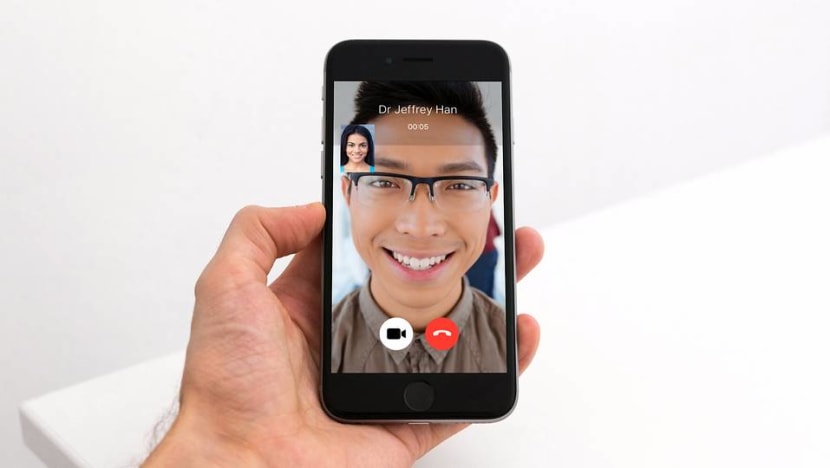
The apps seem to be user-friendly. Mr Foo said MyDoc is “very easy to use”, while Mr Gan “did not face any issue navigating” Doctor Anywhere. “The connection with the doctor was quite clear,” Mr Gan added.
Dr Winston Ho, medical director of Parkway Shenton, said the apps are just part of a “growing number of apps that are now venturing into medical care”, pointing out that one in five smartphone users have one or more health-related apps on their mobile devices.
“There are now hundreds of thousands of health-related apps available and more are appearing each day,” he added. “They also offer information on disease symptoms and treatment. Some even allow user access to their doctors remotely.”
BENEFITS OF TELEMEDICINE
Beyond the convenience factor, Doctor Anywhere co-founder Jeffrey Fang said virtual consultations work well in Singapore, where land is scarce and medical facilities are stretched. “Surely, there must be another way for people with minor ailments to check in with a doctor,” he added.
Dr Ho noted that such consultations are suitable for “simple and straightforward” ailments. “Some have used it for dermatology consults since 70 per cent of dermatology consult involves just looking at the rash,” he said.
In addition, Mr Fang said he has approached voluntary welfare organisations to discuss how his app can help the elderly and the less-privileged get better access to healthcare.
Some of these patients might be less mobile, and it is often too expensive to get doctors to do house calls, he explained.
“To be fair to doctors, it’s also difficult for them to travel from area to area all the time,” Mr Fang added. “So, if we can perhaps have a weekly check-up set up in a nursing home without the doctor going down, then it’s great for us.”
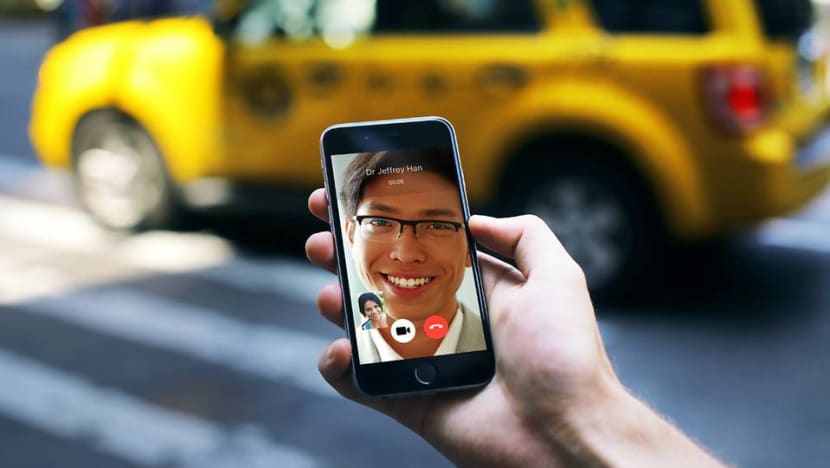
And because outpatient care is increasingly being used to deal with common medical issues in Singapore, MyDoc co-founder Snehal Patel said, having remote access to doctors means patients can always get accurate medical information.
“Users can speak to a real-life medical professional and ask for advice, as opposed to Googling things where they may be getting results that are not exactly what they need to be looking at,” he added.
LIMITATIONS OF TELEMEDICINE
However, Dr Ho said it is unlikely that virtual consultations will replace physically seeing the doctor in the near future, noting that factors like quality of technology will determine their effectiveness.
“About 50 per cent of the diagnostic process involves physical examination which is not available via a teleconsult,” he added. “Physical examination of the patient remains a necessary and critical part of the consultation process.”
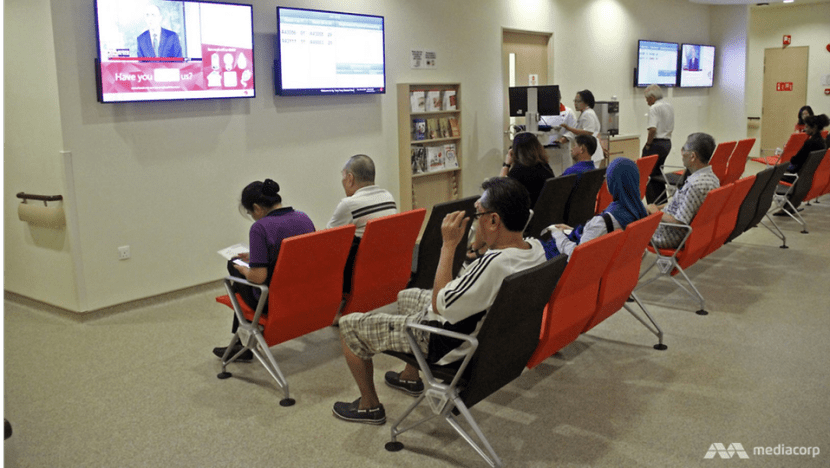
Doctor Anywhere’s website states that common ailments like headaches, diarrhea and skin rashes are suitable for treatment via video consultation. However, it warns that symptoms like breathlessness, persistent vomiting and severe chest pain demand medical attention at the nearest hospital.
“Our doctors will very often suggest that patients get a physical examination, and are very careful to explain the limitations,” Mr Fang said. “We are very clear that it’s not meant to replace in-person consultations.”
Dr Patel said: “We are very clear in our protocol that if a user is acutely ill and they need to go the hospital, our physicians and other medical professionals are trained to make sure they are directed to do that.”
MOVING TOWARDS A SMART NATION
Despite that, both Dr Patel and Mr Fang remain bullish about the future of telemedicine in Singapore.
“Singaporeans are very tech-literate and they really are great consumers for products that are cutting edge,” said Dr Patel, adding that MyDoc is used by about 50,000 people in Singapore, Hong Kong and Sri Lanka. “This is going to be a great market going forward for the digital space, especially in healthcare.”
In April, the Integrated Health Information Systems – the national technology agency for healthcare – launched a national video consultation platform for healthcare services. The platform, accessible via smartphone or computer, allows for multi-party video conferencing, file sharing and the display of medical reports during consultations.
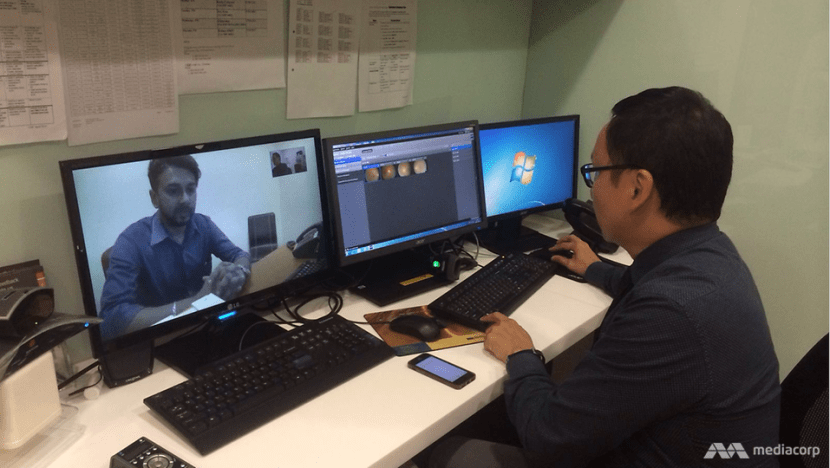
Mr Fang said he is encouraged by the Government’s use of technology to “ease the congestion at their hospitals and polyclinics”.
“Today, everyone is very used to pulling services and information via their mobile phone,” he added. “It’s only a natural progression for them to think about healthcare being used in the same way.”
COMPANIES REACT
But with the use of telemedicine becoming more common among individuals, how will companies respond to features like e-MCs?
“Some companies will look at the panel of medical doctors (offered by telemedicine services), recognise them as company doctors and recognise their e-medical certificates,” said Singapore Human Resources Institute president Erman Tan.
However, companies in the public sector might be more reluctant as they require more “checks and balances”, he added.
Nevertheless, Mr Tan said e-MCs will eventually be accepted across the board.
“With Singapore moving to become a smart nation, people will be more open-minded and technology is also getting more sophisticated and well-proven,” he added. “Gradually, it will be part of the lifestyle of employees, and employers will be moving towards that level of acceptance as well.”
Mr Evrard Bordier, who runs a private bank in Singapore, is already thinking of introducing telemedicine as part of the bank’s employee benefits.
“The inconvenience of getting professional help is impacting our company over the long run. For minor health issues and easy consultation, the future is clear,” said the 49-year-old, who is also a user of Doctor Anywhere.
“Telemedicine can help to reduce costs, improve productivity and bring about more flexibility for companies and employees when it comes to managing their health and wellness."









